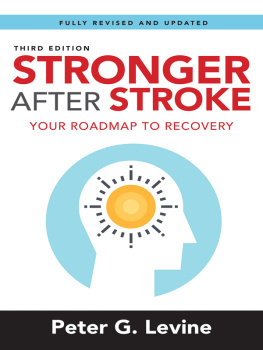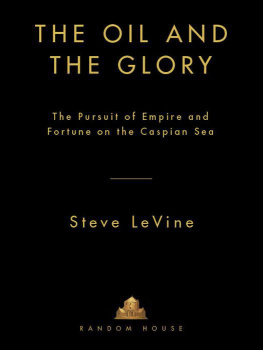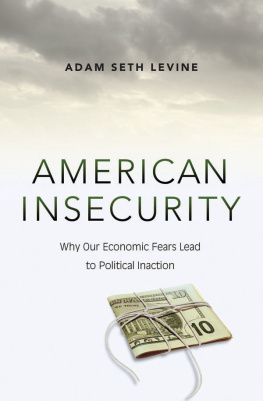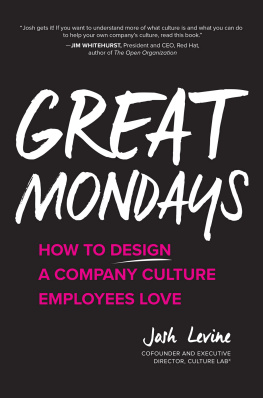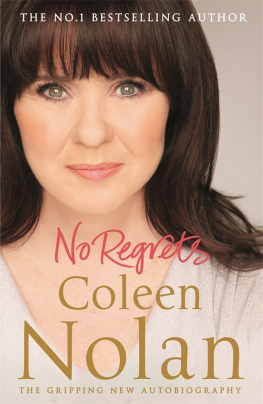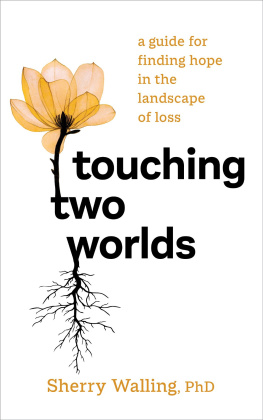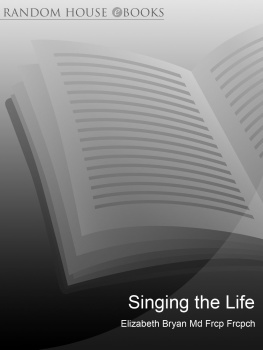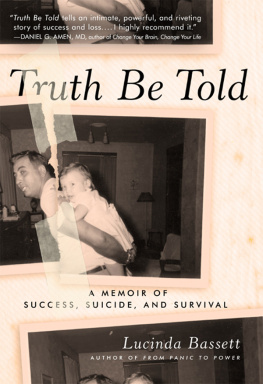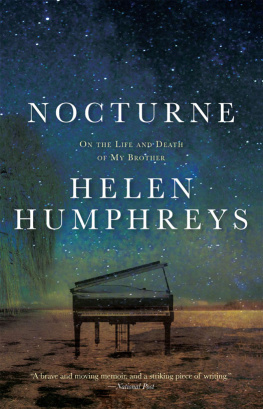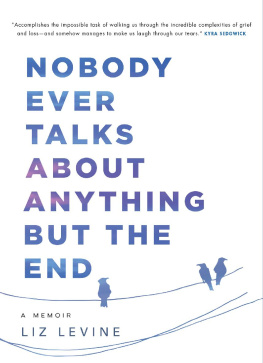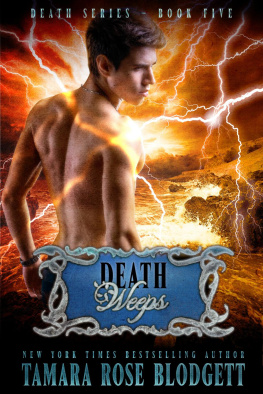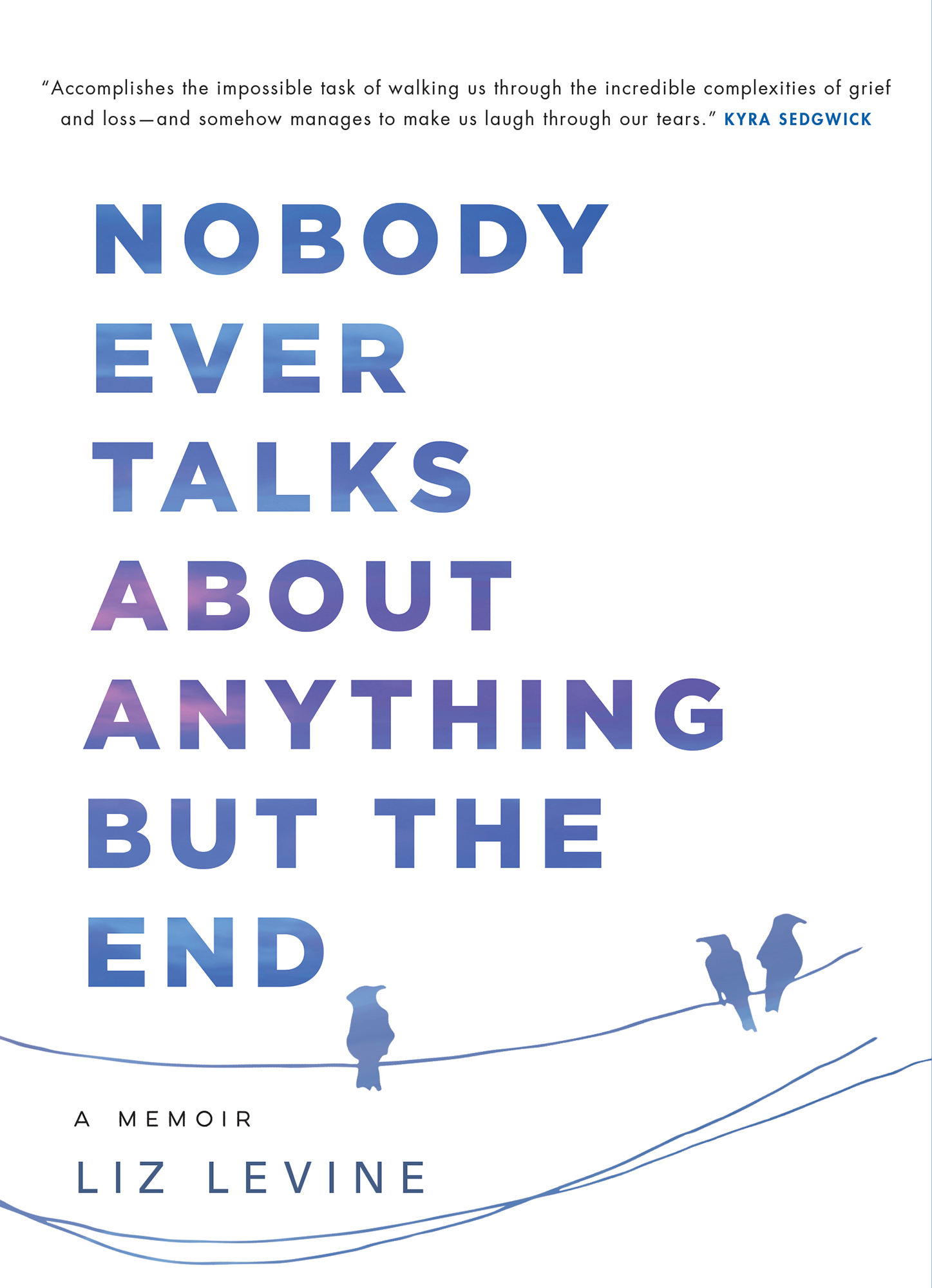Contents
Guide

Simon & Schuster Canada
A Division of Simon & Schuster, Inc.
166 King Street East, Suite 300
Toronto, Ontario M5A 1J3
www.SimonandSchuster.ca
Copyright 2020 by The Liz Levine Productions
All rights reserved, including the right to reproduce this book or portions thereof in any form whatsoever. For information, address Simon & Schuster Canada Subsidiary Rights Department, 166 King Street East, Suite 300, Toronto, Ontario, M5A 1J3.
This Simon & Schuster Canada edition January 2020
SIMON & SCHUSTER CANADA and colophon are trademarks of Simon & Schuster, Inc.
For information about special discounts for bulk purchases, please contact Simon & Schuster Special Sales at 1-800-268-3216 or .
Illustrations by Jax Smith
Library and Archives Canada Cataloguing in Publication
Title: Nobody ever talks about anything but the end : a memoir of loss / by Liz Levine.
Names: Levine, Liz, 1976 author.
Identifiers: Canadiana (print) 20190098430 | Canadiana (ebook) 20190098457 | ISBN 9781982109332
(softcover) | ISBN 9781982109349 (ebook)
Subjects: LCSH: Levine, Liz, 1976| LCSH: SistersDeath. | LCSH: SistersBiography. | LCSH: Loss
(Psychology) | LCSH: Grief. | LCSH: Suicide. | LCGFT: Autobiographies.
Classification: LCC BF575.G7 L48 2019 | DDC 155.9/37dc23
ISBN 978-1-9821-0933-2
ISBN 978-1-9821-0934-9 (ebook)
To the fighters, the hand-holders, the caretakers. This is for you. I see you.
If I succeed in ending my life tonight/this a.m. I am unsure which stories will remain of me, if any.
TAMARA LEVINE
FOREWORD
When my best friend and first love, Judson, got sick it looked like a disease. He was quiet and listless, he lost weight, his skin looked grey, and his eyes lost their spark. His sickness and, ultimately, his death broke my heart, but it made sense to my brain. I saw the illness take him. I saw him fight it, and I saw him lose his battle. I knew I didnt have a cure for cancer and despite my best efforts, I knew I could not save him.
It wasnt like that with my sister, Tamara.
She stayed aliveand sickfor decades. But he died.
No one could validate her illness for menot parents or doctors. When I first started to identify my sister as crazy, l was told not to be mean. More to the point, I was told I was wrong. I was told to open myself more to her, to be more vulnerable and more accessible. That is good advice optically. But I was missing vital information: No one was actually aware that she was sick. Or that her deep, cutting cruelty came from illness.
So l opened up, and I got hurt, over and over again. And the more hurt I got, the less it became about getting to know my sister, and the more it became about trying to find the truth. Trying to fix her.
Fixing is a job for the smart and the strong. Its also the perfect escape for a sensitive soul, so thats who l pretended to beand that stuck. So now Im smart and strong and have survived my sisters suicide, and everyone wants to share their issues around mental healthlike I might have some answers or like l might be able to fix someone. But l cant.
I wish there was an Al-Anon or PFLAG for this. Maybe then I could give some advice. But there isnt. And I cant give that advice. l did this wrong, I didnt love her right, and l cant take that back. The best I can do is try to figure out where I went wrong, to become a detective in death. For now, that means working in reverse. That makes sense to me because the only place I have to work with is the end.
And in this reverse engineering (in the words and the details and the act of being vulnerable with all of the information at hand) I might finally be learning what to do with all the feelings I have. Something that is productive or that might touch someone.
Six weeks after my sister died, I got a tattoo on my wrist. It says make ________.
Eight weeks after, I wrote the first story for this book.
And Im starting where all of us do. With the alphabet.
A
ALPHABET
I read a book called The Lovers Dictionary by David Levithan. And hes right: every word in the dictionary is a synonym for love.
Every word also works for loss.
ACTION
This whole book is a verb for me.
ASHES
My uncle Brian passed away in June of 2004. He requested that his body be cremated and spread across his property.
We spread the ashes. We hugged. And then we went for dinner.
It wasnt until we hit the door of the restaurant that my father noted to someone, Youve got a little Brian on your back.
ADDICTED
People always comment on how I never cry. Thats not completely true. Im rarely if never angry, but I am sensitive and easily hurt, and so I cry in that spaceas in, I tear up a little. I dont cry when Im sad, or at least I didnt for years. Somewhere along the line, that got logged in my brain as a weakness. Im sure it started when I was five and my mother gave birth to quadruplets and one of them, my infant sister, died.
Im sure my mother cried a lot around that time. And then the surviving triplets came home from the hospital, and they cried a lot too. Just at the time when the triplets stopped crying, my mother lost both her parents. Less than three years later, my parents got divorced. So I grew up in a sea of tears. I never wanted to contribute to the flow, for fear that all of us would drown.
It is snowing when I wake up on the morning of April 3, 2005. Judson has been dead for four days, and I have not shed a tear. I remind myself that I have survived this long through numerous losses, heartbreak, failed exams, and family drama without those tears. I seem to be fine. I lie in bed and wonder if my suit will be warm enough. Serious enough. Protective enough to wrap me in the illusion of professionalism for the bulk of the day. I am focused on practicalities.
- Shower.
- Dress.
- Practice the eulogy while you dry your hair.
- Put on an empathetic smile.
- Keep it on all day.
Its my turn to give the eulogy. I feel like Ive waited hours in this synagogue for this moment, yet I feel panicked that its happening so soon. I adjust the microphone and look at Judsons familyright at them. I want them to look back at me, I want to feel their pain.
I want to feel anything.
But I dont. I dont cry. My voice doesnt waver even a little bit, and I wear these truths like medals as we pile back into the car.
The cemetery is surreal: slate-grey tombstones, big fat flakes of snow. I can see Judsons father, Saul, already there: tall, in a long navy coat and hat with the snow swirling around him, standing at the foot of his sons grave.
For all the details I have already forgotten about that day and those few months, and for all those details that I never digested in the first place, what stands alone is this image.
I am too cheerful at the cemetery. Greeting people, giving hugs, staying warm by moving around, staying distracted. Im 29, and my mom still gives me the eyeit says,


